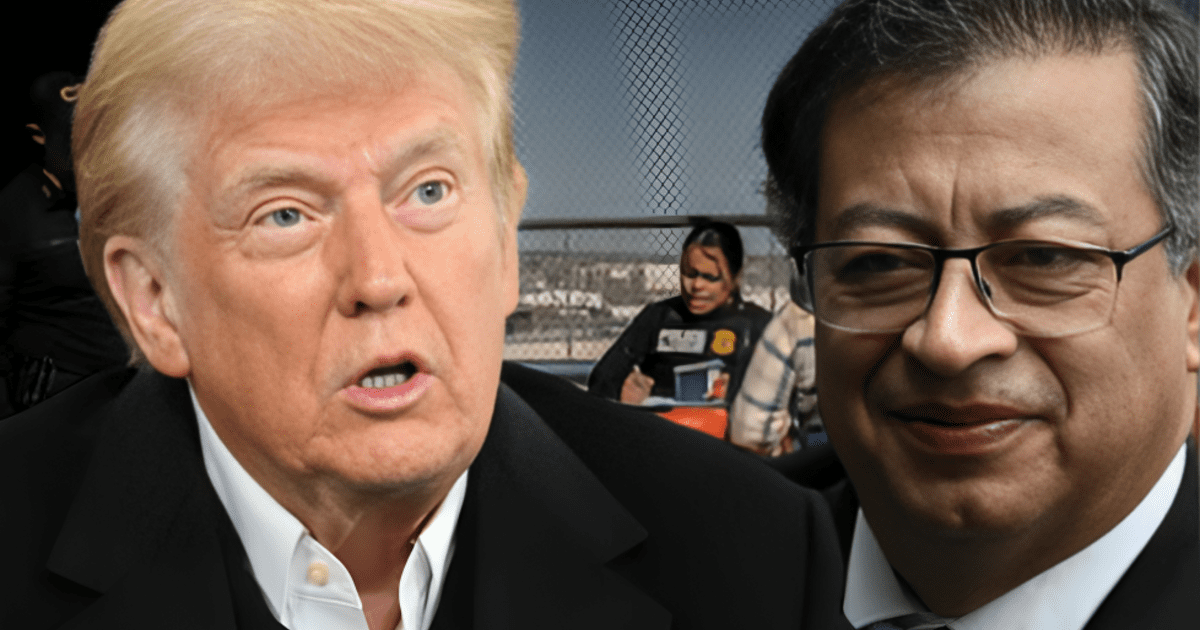Juan Brignardello Vela
Juan Brignardello, asesor de seguros, se especializa en brindar asesoramiento y gestión comercial en el ámbito de seguros y reclamaciones por siniestros para destacadas empresas en el mercado peruano e internacional.




The tension between Colombia and the United States has reached new levels following the recent decisions of their respective presidents. Gustavo Petro, the Colombian president, has decided to increase tariffs on imported products from the United States by 25%, in response to the tariffs imposed by Donald Trump on Colombian exports. This shift in trade policy between the two countries reflects the growing rift in bilateral relations, which has been exacerbated by a conflict over deportation flights and the treatment of Colombian citizens in the United States. Petro announced his decision via the social media platform X, where he indicated that Colombia's Ministry of Foreign Trade should help direct the country's exports to markets other than the U.S. "Our exports must be expanded," the president stated, making clear his desire to diversify Colombia's trade relations in a context of increasing tension with its northern neighbor. This measure aims not only to respond to U.S. tariffs but also to promote national production at a time when American products are set to become more expensive in the Colombian market. Trump's response was swift. In a defiant tone, the U.S. president announced that a 25% tariff would be imposed on all Colombian products, with the possibility of this burden rising to 50% in the near future. Additionally, Trump proposed visa restrictions and potential economic sanctions, suggesting a hardening of the U.S. stance towards Colombia and its immigration policies. This escalation of measures could significantly impact the Colombian economy, as the United States is one of its main trading partners. The diplomatic crisis intensified when the Colombian government decided not to allow the entry of planes carrying deportees from the United States. This decision has been interpreted as a response to the lack of "dignified" treatment for deported Colombians. Petro's stance has resonated in other Latin American countries, which have also criticized Trump's deportation policies, described by the U.S. president himself as "the largest mass expulsion operation of foreigners in the history of the United States." Amid this conflict, Petro has publicly challenged Trump, expressing that he is not afraid of a possible coup similar to what Salvador Allende experienced in Chile. In a strong message on X, Petro declared: "Overthrow me, president, and the Americas and humanity will respond." This type of rhetoric not only reflects the seriousness of the crisis but also Petro's determination to maintain his position in the face of external pressures. The current situation represents a turning point in Colombia's foreign policy, which has historically maintained a close relationship with the United States. Recent decisions could lead to a reconfiguration of trade and political alliances in the region, especially if Colombia seeks to strengthen its ties with other nations in the face of the increasing adversity from the Trump administration. Furthermore, Petro's invitation to Colombian communities abroad to become marketers of Colombian products is an attempt by the government to mitigate the impact of losing access to the U.S. market. This call resonates at a time when many Colombians abroad could play a crucial role in the national economy, especially if they are forced to trade in a less favorable environment. On the other hand, the crisis could have repercussions in Colombia's internal sphere. The political opposition could seize this situation to criticize Petro's management, arguing that his defiant stance could harm the Colombian economy and the well-being of its citizens. However, it could also strengthen support for Petro among those who see his resistance to Trump's policies as a symbol of sovereignty and national dignity. The escalating tensions between Colombia and the United States raise important questions about the future of bilateral relations and the strategy Colombia will adopt in its search for new trade partners. History has shown that relations between nations can be complicated and volatile, and the outcome of this conflict could have lasting implications not only for Colombia but also for the entire Latin American region. Meanwhile, the international community is watching closely as these events unfold. The actions of both presidents serve as a reminder that decisions in international politics often have consequences that extend beyond borders and affect millions of people. Colombia's response and the United States' attitude will be decisive in shaping the future of cooperation and rivalry on the continent.



